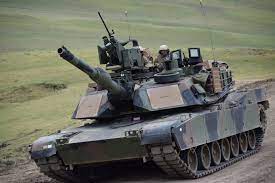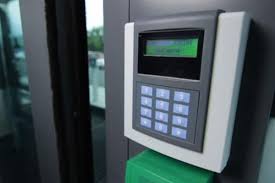Mechanized: Revolutionizing Industries with Automation
In today’s fast-paced world, the term “mechanized” has become synonymous with progress and efficiency. The advent of mechanization has revolutionized various industries, bringing about a significant transformation in the way tasks are performed and businesses operate.
Mechanization refers to the process of using machines or automated systems to carry out tasks that were previously done manually. It involves replacing human labor with machinery, leading to increased productivity, accuracy, and speed. From agriculture to manufacturing, transportation to healthcare, mechanization has left an indelible mark on numerous sectors.
One industry that has witnessed a remarkable transformation through mechanization is agriculture. Gone are the days when farmers relied solely on manual labor for planting, harvesting, and processing crops. With the introduction of mechanized equipment such as tractors, combines, and harvesters, farmers can now accomplish tasks in a fraction of the time it would have taken before. This not only boosts productivity but also allows for better resource management and cost-effectiveness.
Similarly, manufacturing industries have embraced mechanization wholeheartedly. Automated assembly lines and robotic systems have replaced repetitive manual tasks in factories worldwide. This shift has not only led to increased production capacity but has also improved product quality by minimizing human errors. Moreover, mechanization has made it possible to manufacture complex products with precision and consistency.
The transportation sector is another area where mechanization has played a pivotal role. From self-driving cars to automated warehouses for logistics management, technology-driven automation has transformed how goods are transported from one place to another. This not only enhances efficiency but also improves safety by reducing human error and fatigue-related accidents.
In healthcare, mechanization has revolutionized medical procedures and treatments. Advanced medical equipment such as robotic surgical systems enables surgeons to perform complex surgeries with greater precision and minimal invasiveness. Additionally, automated diagnostic tools aid in faster and more accurate disease detection, leading to improved patient outcomes.
While mechanization brings numerous benefits, it also raises concerns about job displacement and the future of work. As machines take over repetitive tasks, there is a need for reskilling and upskilling the workforce to adapt to changing roles and responsibilities. Moreover, it is essential to ensure that the benefits of mechanization are equitably distributed across society.
In conclusion, mechanization has transformed industries by introducing automation and advanced machinery. It has revolutionized agriculture, manufacturing, transportation, healthcare, and various other sectors. The widespread adoption of mechanization has led to increased productivity, improved quality, enhanced safety, and greater efficiency. However, it is crucial to address the challenges associated with job displacement and ensure a smooth transition for the workforce into the era of automation. By embracing mechanization responsibly, we can harness its potential to drive progress and shape a better future for all.
Frequently Asked Questions About Mechanized: Exploring the Difference, Examples, and Meaning
- What is the difference between mechanized and mechanized?
- What is an example of mechanized?
- What is the meaning of the word Mechanised?
What is the difference between mechanized and mechanized?
I apologize for the confusion, but it seems like you have mentioned the same term twice. Could you please provide clarification or specify if you intended to mention two different terms?
What is an example of mechanized?
An example of mechanized can be seen in the manufacturing industry, where automated assembly lines are used to streamline production processes. Instead of relying solely on manual labor, machines and robots are employed to carry out tasks such as assembling components, packaging products, and quality control checks. This mechanized approach allows for increased efficiency, faster production rates, and improved product consistency.
What is the meaning of the word Mechanised?
The word “mechanised” is the past tense or past participle form of the verb “mechanize”. It refers to the process of equipping or operating with machinery or automated systems. When something is mechanised, it means that manual labor has been replaced or assisted by machines, resulting in increased efficiency, productivity, and automation of tasks.



